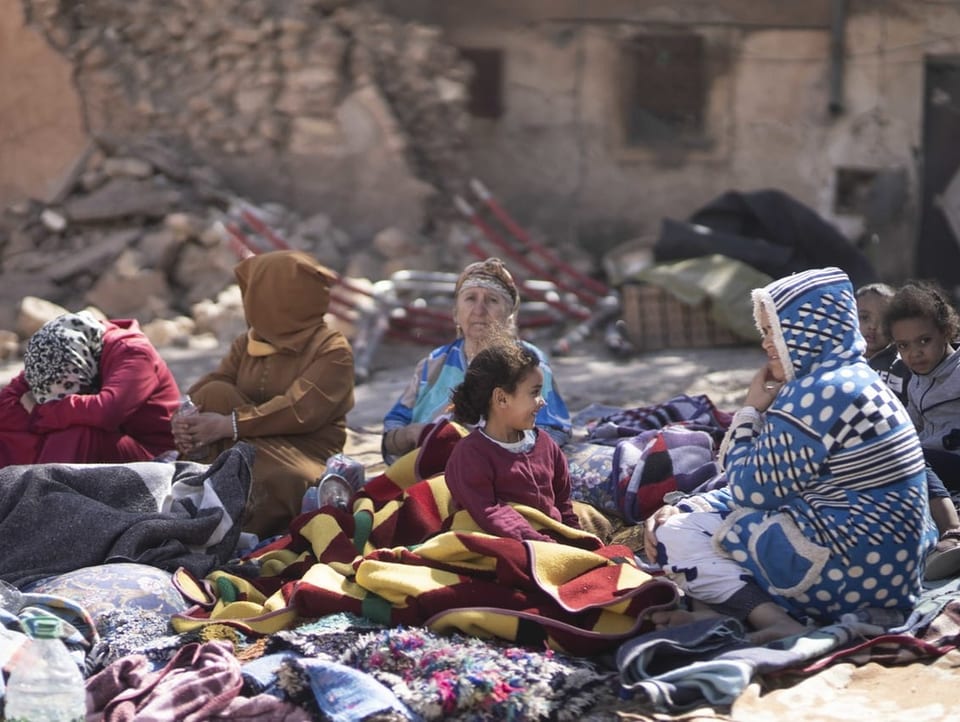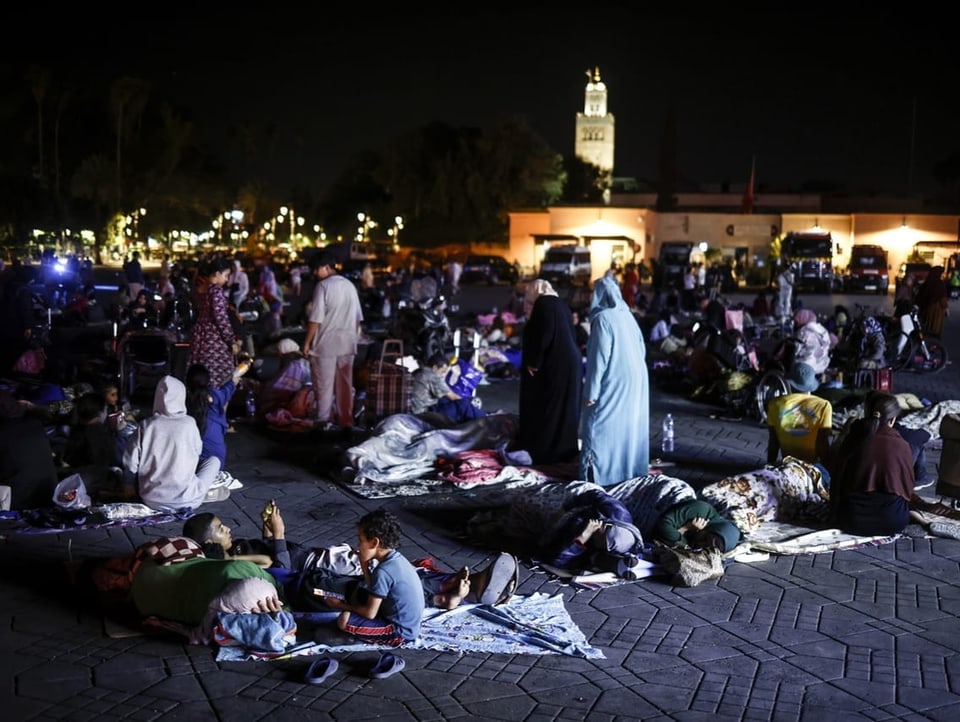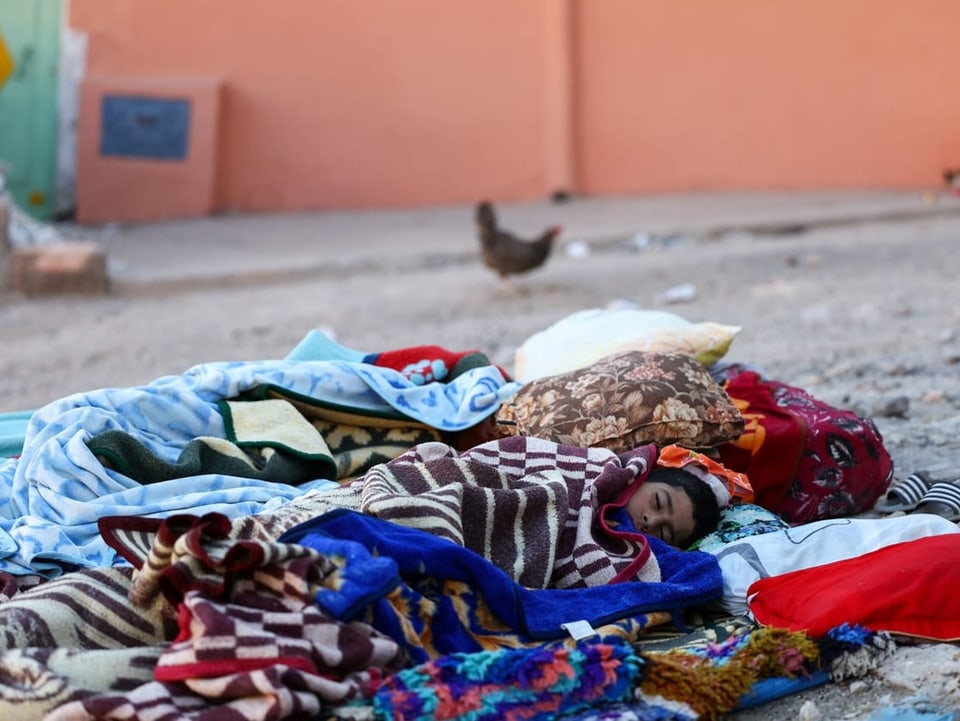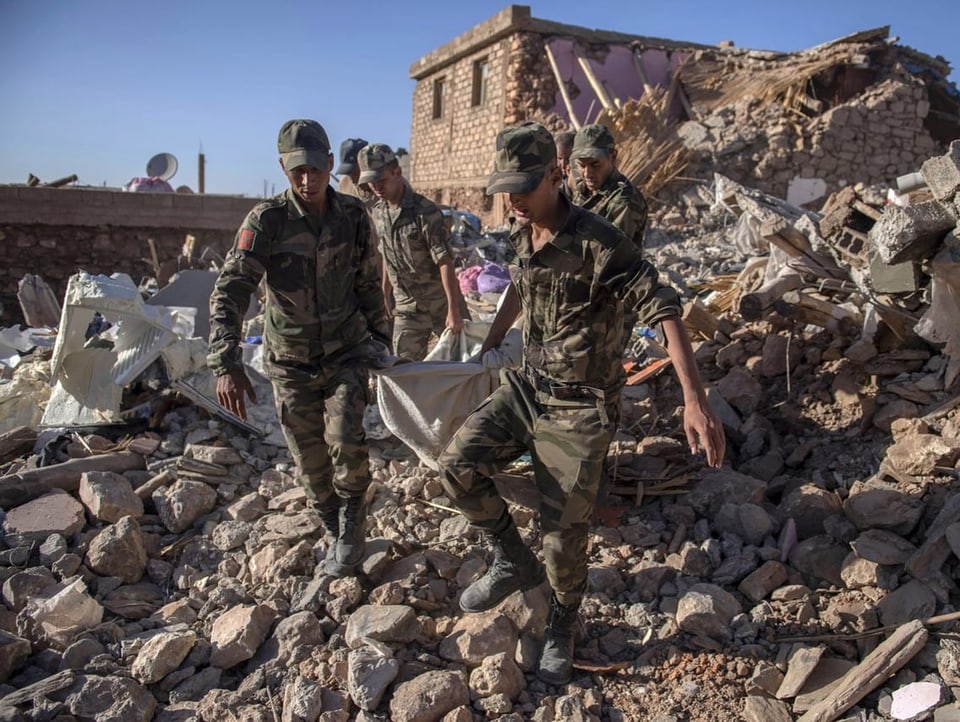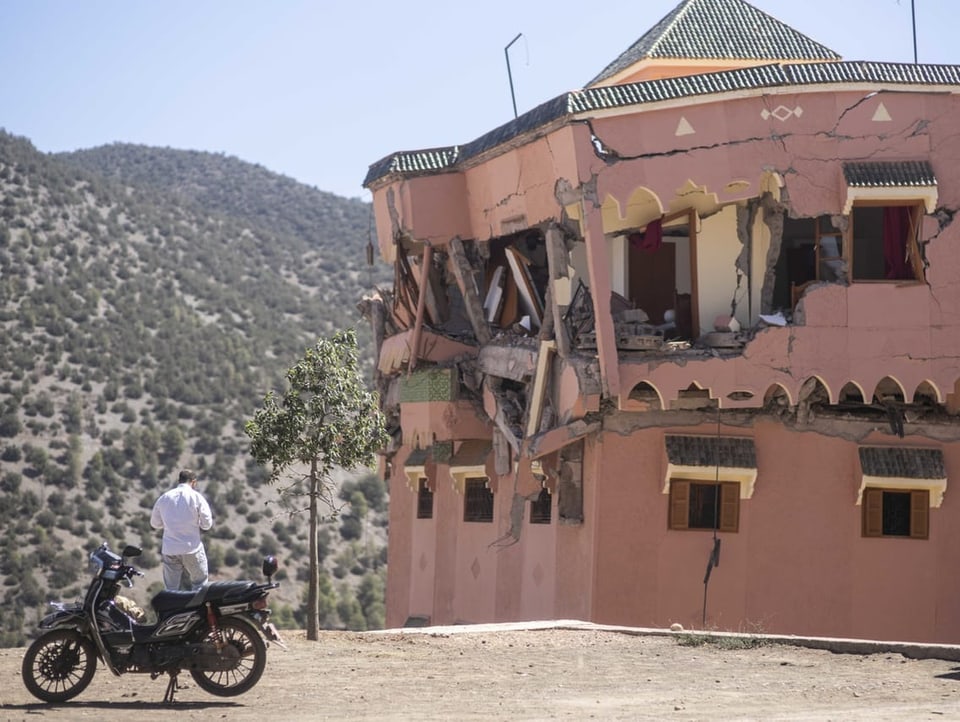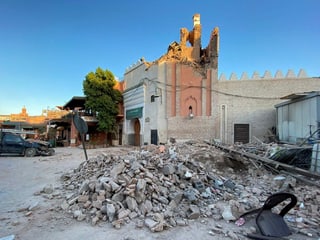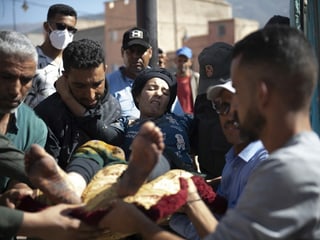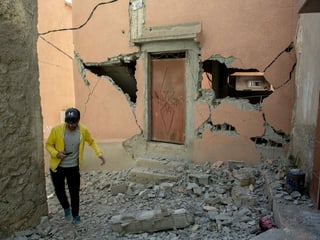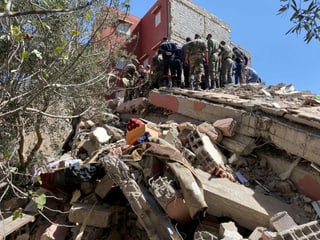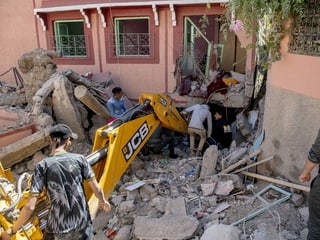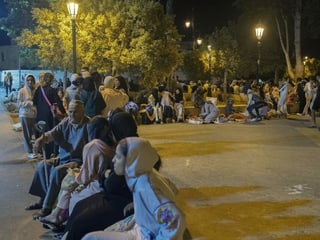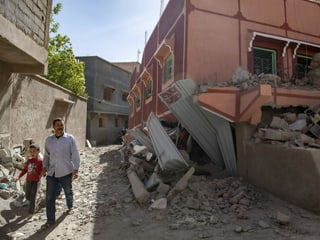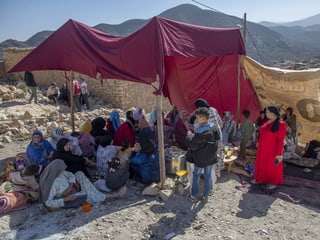After the devastating earthquake with thousands of deaths and injuries, the search for survivors in Morocco is still ongoing and the situation remains confusing. SRF special correspondent Daniel Glaus is in Marrakesh and describes his impressions.
SRF News: How are people in Marrakesh doing at the moment?
Daniel Glaus: The damage after the earthquake can be clearly seen here. Entire blocks of houses have collapsed in the narrow streets. In addition to the over 2,000 deaths and thousands of injuries, many people have become homeless. There are dozens of families on the streets with their few belongings. You spend the nights outdoors, in public squares and parks in Marrakech. Small children sleep here on the bare floor, often only equipped with a few blankets.
How is the rescue and relief work going?
In the city you can see many police officers closing streets and blocks of buildings in danger of collapsing. Individual ambulances are also on the way. But so far there have been few coordinated rescue operations and systematic clean-up efforts. Some of those affected in Marrakesh are finding shelter with relatives in intact parts of the city, and some hotels have been opened. I am currently not aware of any emergency shelters that have been set up. Several families told me that they have not yet received any support from the government.
Is there already criticism of the government?
The people in Marrakesh are now starting to get angry after the shock. They criticize the fact that the centuries-old buildings in the old town have not been renovated despite government promises. Funds for renovations were already discussed years ago. This anger can be felt subliminally on the street. But criticism is not openly directed at Morocco’s King Mohammed VI. or brought forward by the authorities.
Do the people on the streets receive no support at all?
They depend on the help of those around them. And solidarity is very great here. People bring food, drink and blankets and help each other wherever they can. This is also noticeable outside of Marrakech. We repeatedly come across small private convoys with relief supplies that are traveling towards the epicenter on their own. There are reports on the radio that people are lining up in front of hospitals to donate blood.
In some cases it is not yet known whether the people near the epicenter have survived and what help they need.
What is the situation near the epicenter?
The most affected, remote villages in the Atlas Mountains are difficult for rescue workers to reach. Certain streets are still blocked and need to be cleared first. After the earthquake there were power outages and the telephone network collapsed. In some cases, it is not yet known whether the people near the epicenter survived and what help they specifically need. But there are videos circulating on social media that show how much greater the destruction must be the closer you get to the epicenter.
How does it go from here?
Various countries such as Spain, Israel and Switzerland have made offers of help to Morocco. These operations are now being planned. The people in Marrakesh don’t know what will happen next for them. Some of them are not allowed to return to their homes because of the threat of aftershocks. The search for survivors continues. But the situation in Morocco is still confusing.
The interview was conducted by Laura Sibold.

